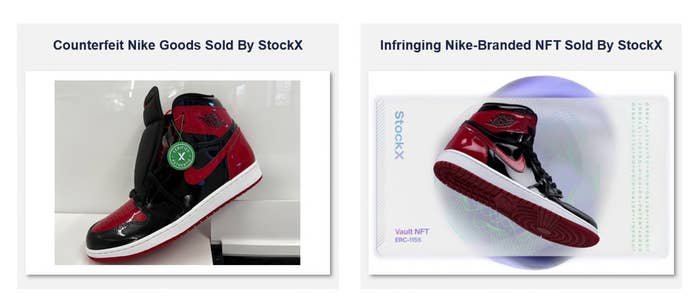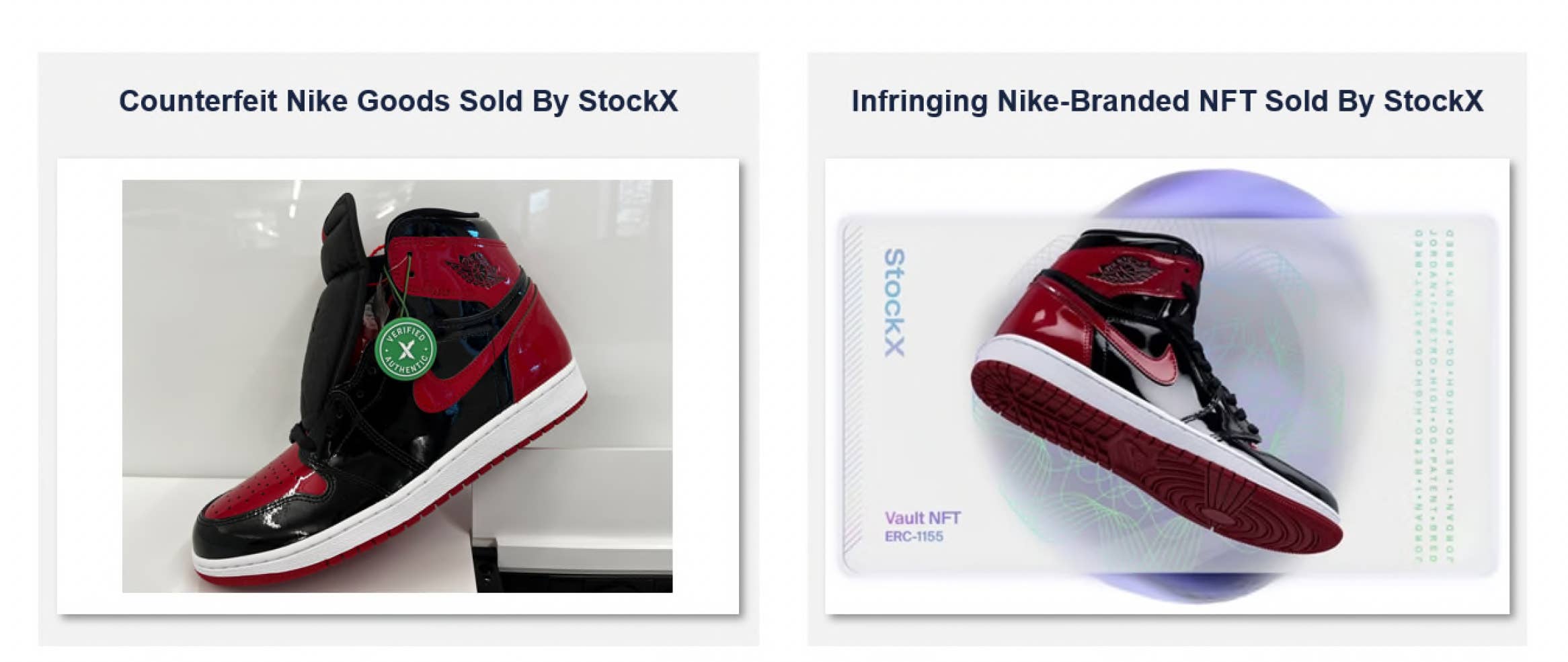
As Nike’s lawsuit against StockX over NFT-related trademark infringement and alleged counterfeit goods approaches trial, the companies are engaged in a dispute over evidence.
The lawsuit is now in its discovery phase, a period in which involved parties exchange details pertaining to evidence and witnesses in preparation for trial. On Monday, lawyers for both the plaintiff and defendant submitted their sides of the argument, outlining what they say are inadequate submissions for discovery.
StockX accuses Nike of “stonewalling” to distract from its own alleged misdoings and issuing an inordinate amount of evidence requests to “bury” the resale marketplace.
It calls the requests for admission “duplicative, burdensome, and inappropriate,” asking that they be rejected by the court, and claims that Nike has failed to produce adequate pretrial evidence. Specifically, it says the Oregon-based sportswear brand has not provided details as to how it identifies counterfeit product nor has it addressed the presence of alleged unauthorized Nikes on the secondary market.
StockX lawyers also center in on Nike’s claim of trademark dilution and “harm of reputation,” alleging that the Swoosh itself has failed to control backdooring and has faced public criticisms including worker conditions and controversy surrounding Lance Armstrong.
“To test whether Nike’s allegations are accurate, and whether StockX has in fact ‘harmed’ Nike’s ‘reputation,’ StockX is entitled to discovery into what that reputation is,” the lawyer’s letter reads.
StockX calls out Nike for its claims against the defendant’s authentication process, saying that the sneaker brand has not provided discovery on “related or identical claims” made by other secondary marketplaces. “Nike’s response (or lack thereof) to other third-party resellers’ claims (like “100% authentic” or “guaranteed authentic”) in connection with Nike products is plainly relevant to consumers’ understanding of StockX’s claims,” the letter reads.
Digital sneakers and NFTs, which Nike has invested heavily in, are also mentioned, with StockX claiming the Swoosh has not disclosed which products it has sold so far. “It is simply impossible to believe that Nike does not have documents relating to each of the digital sneaker products it has sold,” StockX’s lawyers say. “This information is plainly relevant to assessing the proximity of the trademarks and the likelihood of confusion.”
As for Nike, its lawyers say the requests for admission are necessary to ultimately reduce trial time. It says that thus far, discovery has shown StockX “authenticated” and facilitated the sale 78 fake shoes purported to be Nikes, three dozen of which were sold to a single buyer.
“Nike’s [requests] break down each transaction for each good into discrete facts, which StockX can succinctly answer,” Nike’s letter says. “For 78 fake shoes, Nike served five or six requests for admission for each transaction, seeking confirmation that documents such as receipts are true copies that accurately reflect the transaction. This accounts for 421 of the 427 [requests] in the set. The remaining six [requests] require StockX to admit or deny other information regarding StockX’s ‘authentication’ process.”
Nike’s response goes on to address each of StockX’s request for proposal claims, arguing that the footwear brand has already provided enough documentation for many of the asks. It does, however, elaborate on some of the topics including virtual sneakers, which it says it does not sell unless associated with an NFT, and its manufacturing process.
“[StockX is requesting] technical specifications and manufacturing standards for Nike goods, which are highly commercially sensitive documents that Nike is loath to share with a party accused of counterfeiting,” the letter reads. “StockX advertised for years, without these documents, that its authentication process guarantees that 100 percent of the good sold on its platform are genuine.”
Nike also takes aim at StockX’s criticism of its public perception, arguing that the marketplace built its business off of said reputation.
A discovery conference for the dispute was held yesterday in the Southern District Court of New York.
StockX issued Complex the following statement: “While we can’t comment on pending litigation, the content in our filing speaks for itself. We stand by our verification process as one of the first and best in the industry, and in the first 11 months of 2022, StockX protected customers by rejecting nearly 300,000 products worth more than $80M.”
Nike did not respond to request for comment.

